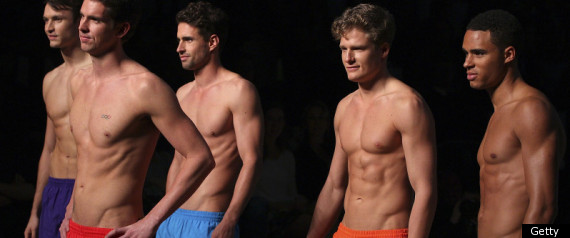A Facebook friend posed the questions below about gay men and physical attractiveness. I wanted to share them, with my answers, as it goes along with my personal issues with body image and trying (or not trying, as is my current status) to date.
TRUE OR FALSE:
1) Gay men are primarily or even exclusively physically attracted to athletic, muscular builds (v-shaped torso, defined pecs and abs)
2) For gay men, physical attraction is the primary or even exclusive determinant in whether they will initiate a conversation with another gay man
3) For gay men, physical attraction is the primary or even exclusive determinant in whether they will respond to a conversation initiated by another gay man
4) Gay men place a higher priority on the physical aspects (including attraction and sexual chemistry/compatibility) of a prospective relationship than on the emotional aspects
5) The likelihood of any of the above statements being "true" for any individual gay man increases in proportion to how closely he approximates the "ideal" of male beauty (i.e. the above are more likely to be true of hunks/twinks than of bears)
For each of the above, please answer T/F for how accurately you feel it describes a *majority* of gay men and then again (if you're comfortable doing so, and if you are a gay man) for how accurately you feel it describes *you*.For a visual approximation of what is being held as the "attractive" athletic, muscular builds here is this relatively modest picture:
 |
| Note: this is a stock image, I do not make any assumptions as to the actual sexuality of the models shown |
Here are my responses to the questionnaire:
I'm actually seeking therapy for my messed up ideas on this subject. Where I think emotionally about the issue, and where my experience places it is that #1-4 are true, and #5 is false. As a large gay man (300+lbs) this goes hand in hand with very destructive self image issues. (I'm not sure which is the cause of the other; I do know they feed off of each other.)
As for my current personal reality:
1 - True. I'm predominantly attracted to athletic, muscular bodies. I do have attractions to men who are not that type, but not as strongly or as frequently.
2 - False. I will converse with most people regardless of how attractive I find them, unless they have some aspect I find an outright turn off. As I think about it, physical attraction may actually deter me some from trying to converse with some people.
3 - Part of me wants to say True. However, I'm not sure if this is the reality of the situation, or if I'm just projecting more of my insecurities. In the end I feel I must say, I don't know.
4 - True. I do think the majority of gay men do this. However, I don't think it's a vast majority. As for myself, this is one of the main issues as to why I'm seeking therapy. I realize I do this, but I don't want to be the kind of guy who does it. Also, given my emotional beliefs about the previous questions this attitude is very detrimental to my interaction with other gay men, and especially in my trying to date.
5 - False. As I've shown above, I'm definitely not one who falls into the "ideal" of physical attractiveness. However, I'm riddled with the attitudes of the previous statements. With gay men in general, my experience is that most go for that "ideal" attractiveness regardless of what they, themselves look like; that is why it is the "ideal". On the other side, I have not seen a strong correlation between those who prefer certain other types, such as bears, and their own appearance.
P.S. I found this article rather interesting along with this discussion: Gay Men's Body Image: Near 50 Percent Would Sacrifice 1 Year Of Their Lives For The Perfect Body, Survey Finds
